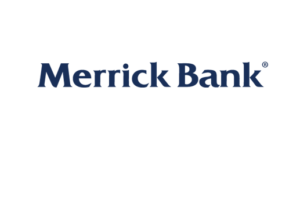Seven Benefits Of Learning Accounting For Growing Small Businesses
If you need health or fitness advice, you may consult your doctor. You’ll also pay a visit to your mechanic if anything happens to your vehicle. However, who will you turn to when you need operational and strategic advice about keeping your business finances and accounting processes in order? Of course, an accountant. That said, not every small business out there will be able to afford a competent accounting professional to handle their business finances. Therefore, learning a few basic accounting skills is a surefire way to maintain financial stability.
Although, you may already have a good understanding of your target clients, industry, and services/products. However, it probably won’t hurt to brush up on your knowledge of accounting operations. Knowing the ins and outs of your finances and profit and loss statements will allow you to learn whether your business is on the pathway to success or not. In addition, it will help you make more informed, strategic financial decisions to penetrate new markets, growing your business in the process.
While hiring a professional accounting firm may be the best option for busy small business owners. Sometimes it’s better to improve your accounting skills to have more control. That being said, let us look at a few benefits of learning accounting skills for growing your business. Some of these benefits are listed down below.
Decision-making
When running a business, chances are you will have to make various decisions that might affect the financial stability of your business. And accounting plays a vital role in the decision-making process. However, you will undoubtedly require a financial statement at first. Such documents can only be generated using your accounting skills. After all, business owners cannot make sound decisions if they don’t accurately record the transactions.
For instance, without the help of a financial statement, you won’t be able to apply for bank loans. In addition, your business’s financial information will usually contain records such as liabilities, assets, expenses, profit, and much more. So, learning to create a financial statement is probably the best way to invest your time and money. That said, you can do such a thing by enrolling in an Accounting MBA online degree. Doing an online MBA will help to manage your business and studies simultaneously. It will also help you improve your business knowledge while ensuring that you’re able to churn out accurate financial statements all at once.
Ensuring statutory compliance
Regulations and laws can vary depending on your business’s legal structure and location. For instance, tax liabilities in California are different from those in Texas. However, proper accounting knowledge and skills will help you maintain compliance, staying clear of the dreaded IRS audit. Plus, having a robust accounting system in place will let you identify and pay your liabilities within the proper time frame. In the end, learning to account will ensure business liabilities such as pension funds, employee taxes, sales tax, and value-added taxes are paid on time.
It helps to evaluate your business’s performance
There is no shadow of a doubt that your business’s financial records reflect its financial position and performance. In simple words, they help you identify how well your business is doing financially. With the help of accounting skills and systems, you can update and clean up your financial records with a click of a mouse. Furthermore, accounting systems will allow you to monitor your debt, gross margins, and expenditures more accurately. It will also help you compare current financial data with previous ones, enabling you to allocate your budget more appropriately.
Meaningful contribution to your business
Imagine this; you’re conducting a meeting with your CFO (chief financial officer), who wants you to look at your business’s previous financial documents. However, suppose you won’t have any accounting skills and knowledge. In that case, you will probably end up scratching your head, not knowing what your CFO is trying to say. So, suppose you already have some basic know-how about accounting. In that case, you will understand what your chief financial officer wants to share with you.
In addition, you will be able to share your own financial opinions and insights to help your business perform well and grow in the process. So, ultimately, with the help of proper accounting knowledge, you will understand your business’s finances, allowing you to be more effective as a small business owner.
It helps you remain organized
Typically, every small business owner should keep a copy of an ‘accounting for dummies’ book with them. While we don’t expect you to read it from start to end overnight, you can always refer to it whenever you’re stuck. That said, learning to account for your small business will help you maintain your invoices and receipts in a more organized manner.
For instance, categorizing entries will help you avoid confusion and calculate your losses and profits easily and quickly. Moreover, you probably won’t have to hire a professional bookkeeper to track your expenses and budget. Instead, you’ll be able to keep your books organized and updated by yourself.
Understanding of current events
It is a well-known fact that the accounting world is full of ups and downs. There have been many cases where business owners have manipulated financial documents for personal gain or experienced disastrous consequences due to small accounting mistakes. However, when you learn accounting skills, you can easily understand what these business owners did wrong and learn from their mistakes and errors.
So, whether you take a one-year accounting course or a four-year accounting degree, you’ll be in good hands. Learning about current happenings in finance and accounting will help your company stay on track to financial stability and success.
Creation of future projections
Most businesses will assess future trends and business trends by analyzing historical data gathered from financial records. That said, improving your accounting skills will allow you to identify your business’s future financial position with the strategies you’re currently utilizing. Moreover, accounting knowledge will also help you immensely when comparing data to develop structured business budgets.
Conclusion
Learning how to handle your small business’s accounting processes can sometimes be a daunting task if it’s your first foray into the business world. However, learning to account is essential for setting up and operating a successful business. That said, if you think that accounting tasks are consuming too much time, consider seeking the advice of a competent accounting professional. They will guide you on making better accounting decisions, ultimately allowing your business to become financially stable.



